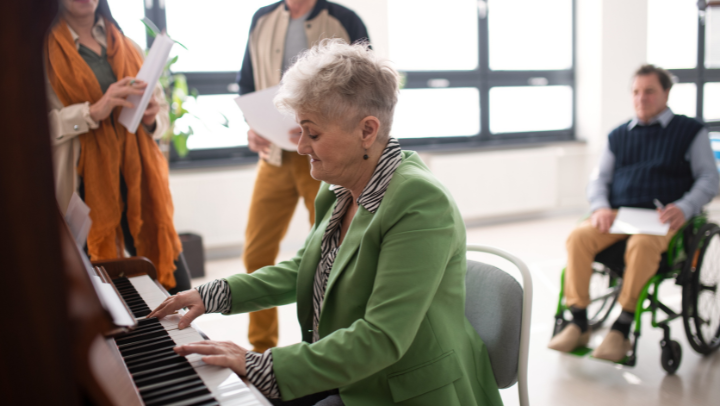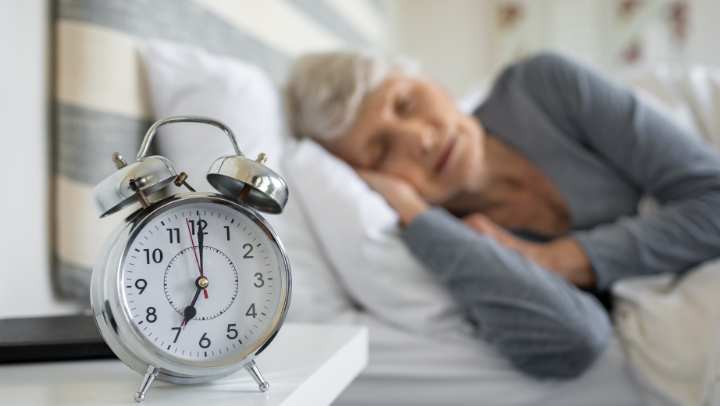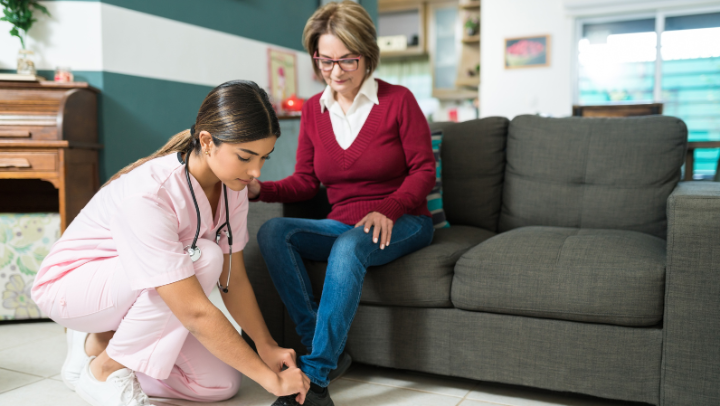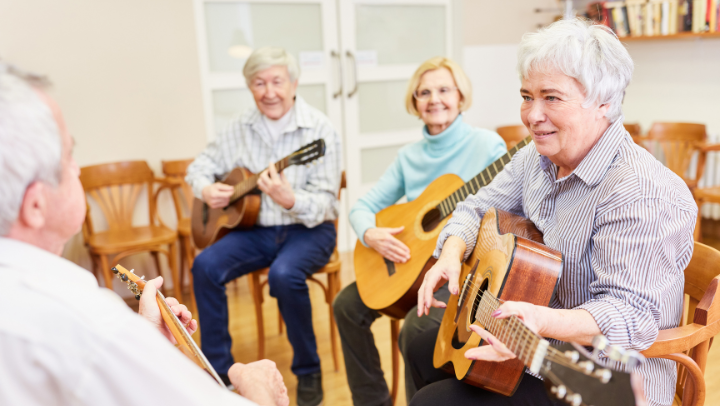
Life’s Soundtrack: How Music Enriches the Lives of Seniors in Tacoma, WA

Music has a unique power that touches hearts and reshapes the scene of daily life, particularly for personalized senior care in Tacoma, WA. This universal language brings purpose and joy to seniors’ lives and creates meaningful connections that exceed age and time.
Music’s role goes beyond entertainment as a vital tool that enhances seniors’ quality of life. Musical experiences encourage independence and personal expression, which are part of wellness programs that support our senior community members.
You might be learning about senior living options or looking for ways to enrich your loved one’s daily routine. This piece shows how music positively changes seniors’ lives, from supporting cognitive function to brightening everyday moments.
The Science Behind Music and Senior Wellness
Science has discovered essential links between music and brain health in senior care. Music creates powerful changes in the brain that help people age better.
Musical activities give your brain a complete workout. Research shows older adults boost their thinking skills even with short music training. The brain’s natural ability to change lets it create new neural pathways when exposed to music. Brief musical sessions can increase gray matter in the brain.
About 98% of older adults get health benefits when they involve themselves with music. On top of that, a lifetime of musical activities, especially when you have piano experience, helps improve memory. People also get better at planning and finishing complex tasks.
Benefits for emotional health
Music’s effect on emotions plays a vital role in senior wellness. About 75% of adults over 50 say music helps them feel less stressed and more relaxed. Another 65% notice their mental health and mood getting better.
Music boosts emotional well-being in several ways:
- Cuts down anxiety and aggressive behavior
- Brings down blood pressure and stress hormones
- It helps you sleep better and stay alert
- It makes life more enjoyable
Studies that compare music therapy with regular treatments found something interesting. People who got music therapy showed better improvement in depression symptoms than those who only took medicine.
Music as Memory Medicine
Music and memory share a remarkable connection. Research shows that musical memory areas stay preserved in aging brains and remain available even in advanced stages of memory-related conditions.
Triggering memories
Music acts as a powerful trigger for memory recall. People who listen to familiar songs can recover vivid autobiographical memories better than other sensory stimuli. These musical experiences help seniors travel back in time and activate memories they thought were lost forever.
Seniors experience significant cognitive benefits from music’s unique interaction with the brain. Active participation in music has improved working memory by 6% on average. These improvements show up in several areas:
- Improved categorical word fluency
- Better autobiographical memory recall
- Better retention of song lyrics
Creating new neural pathways
Music builds direct channels between the brain’s auditory system and reward center. Regular musical activities increase brain connectivity, especially in memory and motivation areas. This improved connectivity helps maintain cognitive function because musical activities stimulate synaptic connections that might remain inactive.
Studies show that memory and cognitive function improvements last anywhere from one to six months after musical interventions. Music continues to be a vital tool supporting seniors’ memory and mental wellness through these mechanisms.
Musical Activities for Senior Engagement
Group singing creates powerful opportunities for social connection and cognitive stimulation. Research shows that choir participants consistently report higher well-being measures compared to those in other social activities.
Singing in groups offers multiple advantages:
- Improves respiratory function and vocal strength
- Improves cognitive abilities and concentration
- Builds confidence through shared achievements
- Creates meaningful social bonds
Personalized playlists
Creating tailored playlists requires carefully selecting music from a senior’s formative years. We focused on songs from their teenage and young adult life. These custom selections improve cognitive functions and memory recall significantly. Research proves that personalized music reduces the need for mood-altering medications. Seniors start feeling more like themselves again.
The benefits of tailored playlists include:
- Better swallowing and nutrition
- Lower fall risks
- Better socialization with family and staff
- Less resistance to care
Mood management through music
Rhythm-based activities prove vital tools for physical and mental wellness. Studies show that musical interventions reduce depression and anxiety while improving behavioral issues. Exercises can combine controlled movements with musical elements, focusing on balance and coordination.
Seniors who participate in rhythmic movement programs show marked improvements in their gait and experience 54% fewer falls. These well-laid-out activities help seniors maintain mobility while building social connections.
Music: A Gift of Love and Connection
Music is powerful in senior memory care and provides benefits way beyond the reach and influence of entertainment. Music isn’t just another activity. It’s a vital tool to maintain cognitive health and emotional balance.
Personal playlists and group activities with music create meaningful connections that boost seniors’ quality of life. These musical moments are especially valuable when you have memory challenges. They often reduce medication needs while improving daily function.
Would you like to discover how music can boost your loved one’s senior care? Our team at Peoples Senior Living knows music’s power in memory care. You can learn more about our music-based programs supporting cognitive wellness and emotional well-being by calling (253) 474-1741.
